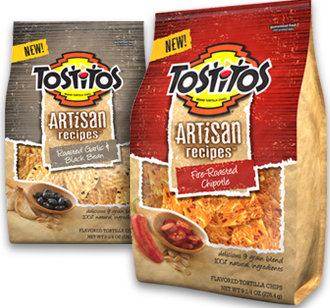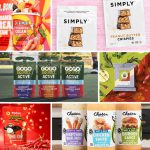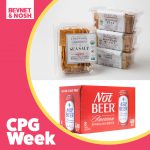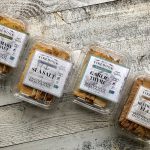New Harris Poll Says: Be Careful Crafting Packaging Language
Sometimes it can feel like every new food and beverage product that emerges has a reason that it’s “special.” These days it’s common to see trendy descriptors applied to a range of products from specialty and mass market brands such as Tostitos Artisan Recipes Baked Three Cheese Queso Flavored Tortilla Chips, Limited Edition Cheesy Fiesta Nacho Hamburger Helper and Teas’ Tea Limited Edition Sincha.
But how much do these buzzwords matter to consumers? Do they actually impact purchasing? These were the questions a recent Harris Poll sought to understand regarding the terms handmade/handcrafted, artisan/artisanal, custom, craft, limited edition, and small batch.
Respondents to the survey, which consisted of 2,225 individuals, were asked what descriptions were indicators of a high quality food and beverage product. Of the list, handmade/handcrafted was the clear winner with over half (59 percent) of individuals agreeing that it communicated a message of quality. Artisan/artisanal and custom both tied for second most impactful message at 46 percent of respondents.
Limited edition and small batch though were less consistently seen as indicators of quality, with only 41 percent and 31 percent of respondents agreeing that the descriptor communicates that a product is high quality.
Across all of the descriptive terms, millennials (ages 18-37) were more apt to agree that they were a descriptor of quality. Older respondents (progressing from Generation Xers to Baby Boomers and mature consumers), were less likely to associate any the terms with an indicator of quality. For example, while 53 percent of millennials saw the term artisan/artisanal as an indicator of quality, only 47 percent of Generation X consumers (ages 38-49) , 42 percent of Baby Boomers (ages 50-68) and 36 percent of those identified as mature (ages 69+) had the same association.
The generally positive sentiment towards these terms might indicate food and beverage manufacturers should add them to packaging. Yet, when asked about how much these terms impacted purchasing decisions, the numbers significantly dropped. For example, 48 percent of respondents said that a product’s label of handmade/handcrafted would influence their purchasing. Trailing in second was limited edition (37 percent) and tied for third was custom and artisan/artisanal (36 percent). Again, older respondents were even less likely to see purchase intent be influenced by the descriptors then millennial participants.
Another issue the survey raised was that although there may be perception of a descriptor as an indicator of quality, they also are perceived as being overused. Leading the descriptors responsible for this offense was limited-edition with 64 percent feeling that it was overused. Over half the respondents also agreed that handmade/handcrafted, craft, artisan/artisanal, and custom were also over used. Small batch, as a descriptor was fairly evenly split in sentiment with 32 percent reporting it was overused, 30 percent saying it was underused and 37 percent saying it was neither under or over used.
Respondents also felt certain words fit better for different foods and beverages and thus were a more appropriate way to describe them. The strongest association was between beer and the term craft as 52 percent of respondents saw its usage as a good fit. Handmade/handcrafted saw the most relationships including baked goods (46 percent), chocolate/candy (43 percent), and jam/jelly/preserves (45 percent). Custom was widely not as clear an association across all categories as 39 percent of respondents felt it was not a strong fit with any food or beverage category listed.
Significant to note is the meanings behind the terms examined in the survey. A product labeled handcrafted/handmade, craft or artisan/artisanal often makes a statement about how it’s made and the effort that went into its production. However, limited edition and small batch are descriptors about the “exclusiveness” of the product, designed to convey the time sensitive nature in making a purchase. A limited-edition product is on shelves only a short period of time and a product made in small batches could run out quickly.
What this survey demonstrates is that utilizing words that talk about how a product is made does seem to be an indicator of quality. Additionally, while a word conveying the exclusiveness of a product may not indicate quality, it can inspire purchasing.













